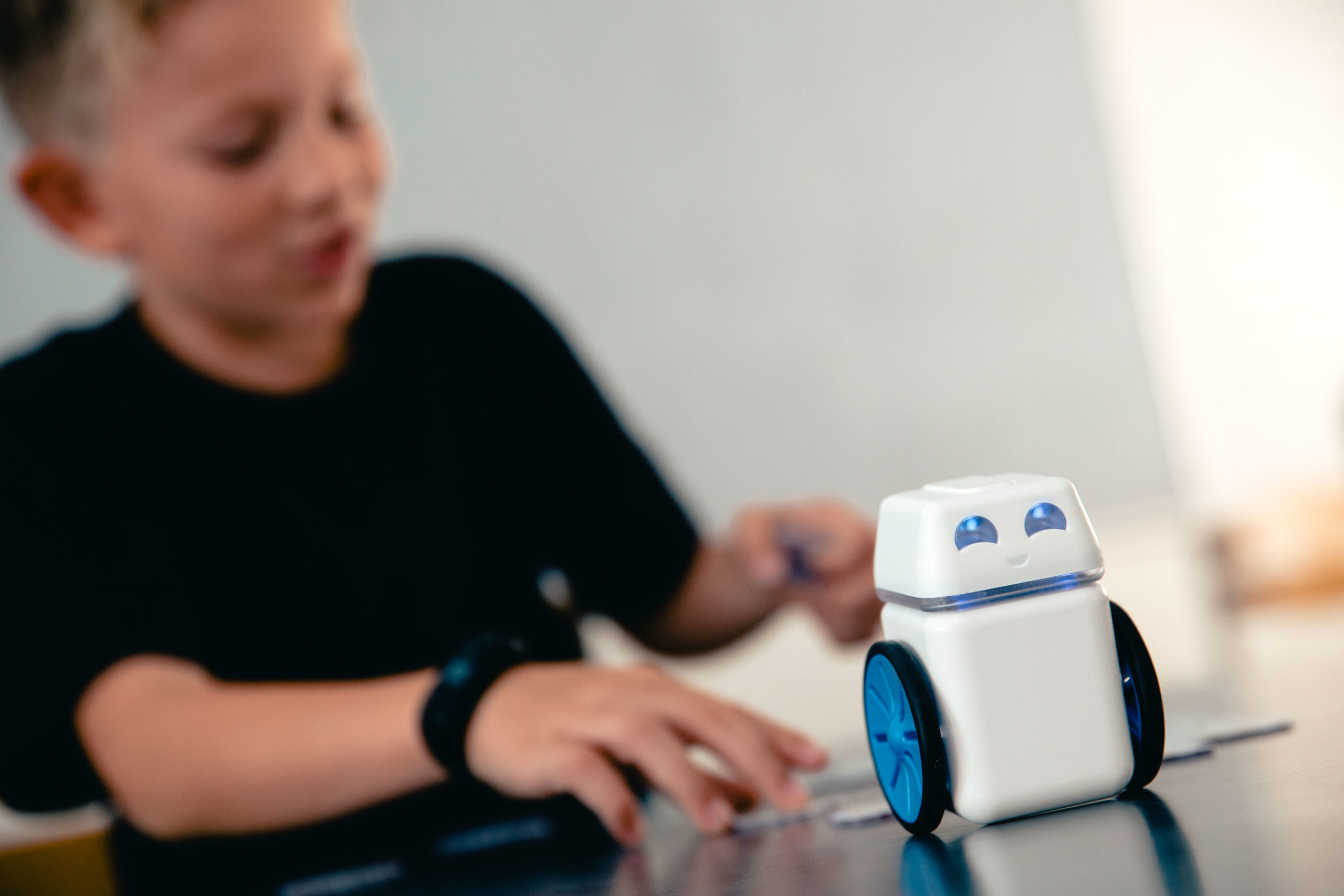Award-winning company KUBO robotics has created a small robot that can teach children as young as three or four the basics of coding.
The idea started as a research-based project at the University of Southern Denmark with the intention of giving children a basic understanding of coding before learning to read and write without the use of a screen or computer.
Daniel Lindegaard and Tommy Otzen developed KUBO, a small robot around the size of a can of soda that turns abstract concepts into puzzles. Their website states that they developed the startup because although the vast majority of the population consume technology on a daily basis, very few understand how it works. Through KUBO, they hope to democratise technology and accelerate learning.
“Technology has the power to positively transform learning experiences, yet it often does little more than encourage students to simply move objects around on a screen,” Tommy Otzen told news distributor PRNewswire. “In a world where 47 percent of all jobs are expected to be automated by 2034, we set out to create an easy and fun coding solution where children could physically manipulate, experiment and problem-solve the same way an engineer does when developing creative solutions.”
On March 7, PRNewsWire announced that KUBO had partnered with leading educational resource provider Pitsco Education to help roll out the new robot to K-2 schools across the US. Pitsco Education is well versed in K-12 STEM solutions that teach science, technology, engineering and mathematics in a hands-on way, creating engaged students who are prepared for the future job market.
KUBO works with a TagTile system, small sets of tiles that are placed together manually like a jigsaw puzzle. The robot drives over the tiles, ‘reading’ them using RFID technology, as each separate tile is installed with an RFID tag.
This new educational resource is not just for coding, however, as the technology can be used to teach languages, music and spelling to name just a few. The robot can also be toggled to different levels as the material gets more complex.
A Google-commissioned Gallup study shows that the majority of schools don’t have dedicated programmes for coding, despite the fact that 93% of parents feel that opportunities to do so are a good use of school resources. Computer science is fast becoming an intrinsic part of our lives, and the U.S. Bureau of Labor Statistics estimates that 1.3 million jobs in computer and mathematical occupations will be created by 2022.
This highlights the importance of teaching computer science and literacy to all students, which not only will help them in the world of work in the future, but also helps to develop critical thinking, creativity, collaboration and communication.
One of the main reasons that primary school teachers are reticent to bring computer science into the classroom is a lack of resources and a lack of prior knowledge of the subject. This is where KUBO excels, as it requires no previous knowledge and can be up and running in a matter of minutes.
Teaching children abstract concepts from such a young age is demanding for all teachers, but the best way to engage students in any subject is through the medium of play, again, something that KUBO has managed to incorporate into the process. Executive vice president of Pitsco, Stephan Turnipseed, emphasised this when announcing their partnership with KUBO on PRNewsWire.
It is when we are at play that our minds are the most engaged,” said Turnipseed. “Coding, like all impactful learning, is best done in a hands-on, play-based environment. We are thrilled to be teaming up with KUBO Robotics in a joint commitment to providing shared, learner-centered experiences that engage hands and minds in a fun context for both the student learners and the teachers.”
There are various coding programs that provide computer programming education to certain groups within society, such as Laboratoria, GirlsWhoCode, and a proliferation of online coding courses. However, a real push needs to be made to ensure that this skill becomes part of the curriculum, as it is inevitable that it will be a required skill in the new digital age which is coming our way.












